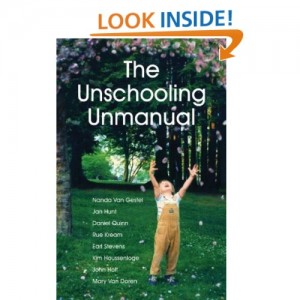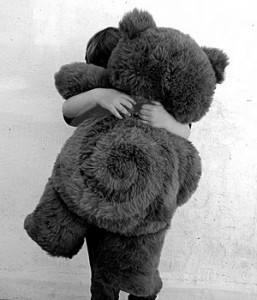Image source: Here
Have you ever seen a newborn, how does he learns to crawl, stand or walk? We as an adult do not have learning sessions with infant to show how to crawl on your fours? Or, when we walk, how opposite hand and leg co-ordination should go? We do not have 30 minutes of classes and exams for it, yet infants learns to crawls, walk and chew and talk just by observing adults around him or her.
Knowledge and learning is very important, not piece of paper that shows the degree. One could have many degrees and yet do not know much or remember much after passing the tests. Unschooling is such a method of learning, that is alternate to what we think education system is. Yet it works for many kids and adults alike.
When we have a natural curiosity about the subject we learn the best, one size fits model of schooling does not work for every child or an adult. All of us do not learn the same way, and we all have different learning and teaching style. Some learn better by reading, some learn best by watching and others learn by doing hands on approach. Once we know what our learning style is, gaining knowledge is better.
I have BS in engineering and Marketing degree and half finished MBA, yet I have forgotten many things I learned in the university. I feel now when I have questions, I go on Wikipedia or and other websites, read many books and my learning is ongoing and I feel more knowledgeable than ever, because all the learning I am doing is because I want to, not because I am forced to or going to be tested upon.
Author and educator John Holt coined the term “Unschooling” in 1970s, when he wrote the book “How children fail“, I read the book after one parent recommended when I was searching for preschool for my son. It changed the way I think about education system, as John holt wrote about his experience as a teacher.
 Here are some of quotes by John Holt; Although his quotes are for children’s education, it can apply to adult education too.
Here are some of quotes by John Holt; Although his quotes are for children’s education, it can apply to adult education too.
“Since we can’t know what knowledge will be most needed in the future, it is senseless to try to teach it in advance. Instead, we should try to turn out people who love learning so much and learn so well that they will be able to learn whatever needs to be learned.”
“I can’t help noting that no cultures in the word that I have ever heard of make such a fuss about children’s bedtimes, and no cultures have so many adults who find it so hard either to go to sleep or wake up. Could these social facts be connected? I strongly suspect they are.”
“What makes people smart, curious, alert, observant, competent, confident, resourceful, persistent – in the broadest and best sense, intelligent- is not having access to more and more learning places, resources, and specialists, but being able in their lives to do a wide variety of interesting things that matter, things that challenge their ingenuity, skill, and judgement, and that make an obvious difference in their lives and the lives of people around them.”
“If we continually try to force a child to do what he is afraid to do, he will become more timid, and will use his brains and energy, not to explore the unknown, but to find ways to avoid the pressures we put on him.”
“Children do not need to be made to learn to be better, told what to do or shown how. If they are given access to enough of the world, they will see clearly enough what things are truly important to themselves and to others, and they will make for themselves a better path into that world then anyone else could make for them”
“It is as true now as it was then that no matter what tests show, very little of what is taught in school is learned, very little of what is learned is remembered, and very little of what is remembered is used. The things we learn, remember, and use are the things we seek out or meet in the daily, serious, nonschool parts of our lives.”
“Living is learning and when kids are living fully and energetically and happily they are learning a lot, even if we don’t always know what it is. “
If you have not read John Holt’s books, please do so, here is little information about him from wikipedia click here : John Holt.
Sudbury model schools are where learning is individualized and child-led, and not forced education on him or her. I have visited a sudbury schooling here in SF bay area, where all age (from 4-16 years) children learn together and play together and it is based on unschooling way of teaching.
More information from other sites:
What is your opinion on today’s schooling system? How do you learn best? While I understand, everyone learns differently and their pace, in my opinion, learning happens best, when you are curious about the subject and learn on your own and not because you have to.
What do you think?

Hi Zen Girl!
Thanks for sharing this book. I teach my daughter from home and she enjoys learning. I am amazed that she enjoys learning.
I recently uploaded a video sharing the materials that I use to help my daughter learn. She’s doing very well, but I had to discover her learning style and after I did that, I don’t get so frustrated.
This book sounds like an interesting read. I will have to check it out.
I have taught in school systems and I would rather teach my child myself. One-on-one time is what she needs and I doubt she would get that in a institutional setting.
I think that when we discover the child’s learning style then teaching will be easier and they will enjoy learning even the more.
Take care,
Evelyn
Evelyn,
You may like John Holt’s books as he was an educator himself and he saw first hand how children learned and how they failed.
My first son does better when he is interested in subject himself, he retains much more knowledge and info learned. My younger one is simply happy playing with toys but he is still learning a lot when he wants to.
I have to check out your video post as I am intrigued and will do so soon. Thanks for comment.
One of the most important realizations for me in college was that students weren’t learning what they needed to know to enter the workforce necessarily, but HOW to learn. If you can get kids excited about learning what makes the world work, the battle is more than half over.
Mike,
I agree, once the student is interested because he or she can related how it effects him or her in “real life”, passion flows. I see that with young kids and teens as well. We all learn best when we are interested in the subject. Thanks for commenting.